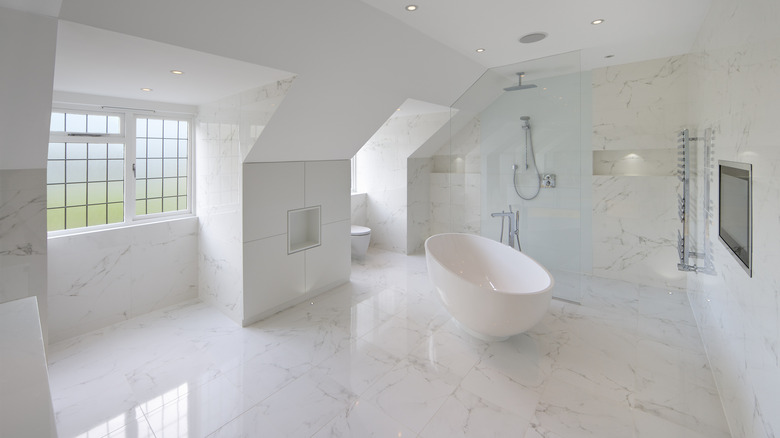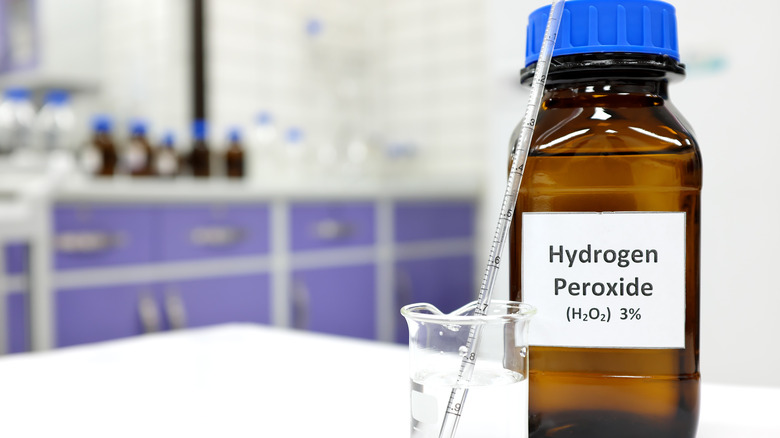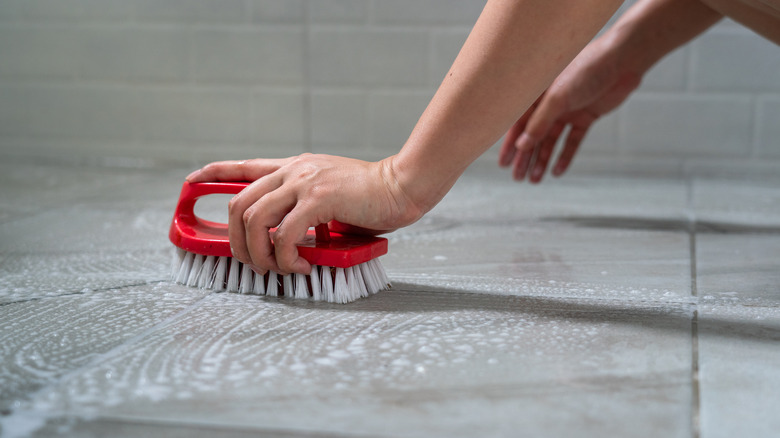Is Hydrogen Peroxide Safe To Use On Marble Floors?
Because of the cost involved, you want to make sure you protect and care for your marble properly. You don't want to use a cleanser on it that results in irreparable damage or staining. When seeking safe cleaners that are still strong enough to do the job properly, you may be wondering if it's safe to use hydrogen peroxide on your marble floors. Although you will find varying advice on using hydrogen peroxide for this purpose, it appears to be safe to use it on your marble.
As long as you've taken the correct steps to protect the stone, such as using sealants regularly, no damage should occur. You may want to try some other cleaners first, just to see if they will take care of the stain before you go the route of using a more acidic cleanser like hydrogen peroxide. Things like simple dish soap and water can be safer to use for general cleaning of marble floors. However, "You should never use strong acids. Citrus, liquor, vinegar, strong chemicals –- these are not good for the surface," Juan Enciso, owner of The Marble Clinic Restoration in Los Angeles, told Ad It Yourself.
How hydrogen peroxide's acidity stacks up to other cleansers for marble
When looking for a cleanser that has low acidity, pay attention to the pH level, which measures the acidity or base level of any type of material. The scale ranks materials between zero and 14. Water is considered neutral with a pH of 7. Acids have a level lower than 7, while bases are greater. When cleaning marble floors, you want to use a cleanser that is as close to neutral on the pH scale as possible. If you use a cleaner that is a little too acidic, you could eventually create etch marks on the marble. Stronger cleansers that are closer to zero on the scale could create immediate etching damage on the surface of the material.
When using hydrogen peroxide, the pH level usually will be between 3 and 6. You can make hydrogen peroxide less acidic by diluting it. Hydrogen peroxide made for household use typically is a 3% concentration, while stronger concentrations are available for industrial and medical uses. In the 3% concentration, hydrogen peroxide is a weak acid with a pH level of about 6.5, which isn't as safe as soap and water, but that's far safer than more acidic cleansers, such as those with citrus. Lemon juice has a pH level of about 2.
How can I use hydrogen peroxide safely to clean my marble floors?
If you want to use hydrogen peroxide safely for cleaning, you should start by making certain your marble floors are sealed at the time of installation. Because this is a porous material, having a sealant on the floor prevents moisture from spills from penetrating the stone. With the sealant in place, the chances of 3% hydrogen peroxide damaging it through unwanted etching will be less. Expect to need to seal marble at least once per year, perhaps more often if it is lighter-colored.
If you've already tried dish soap and water to clean the marble floors and you still have stains, you then can try using 3% hydrogen peroxide. Some people will mix it with baking soda to create a paste. Baking soda has a pH level of 8, so it helps to counteract some of the acidity. If you don't want to use baking soda, but you still have concerns about the acidity, you can try diluting it with warm water to create a more neutral pH cleaner. Alternativly, use a stronger concentration of hydrogen peroxide by not diluting it for spot-treating stains with a scrub brush. Stronger hydrogen peroxide is safer to use on light-colored marble than on dark-colored marble.


